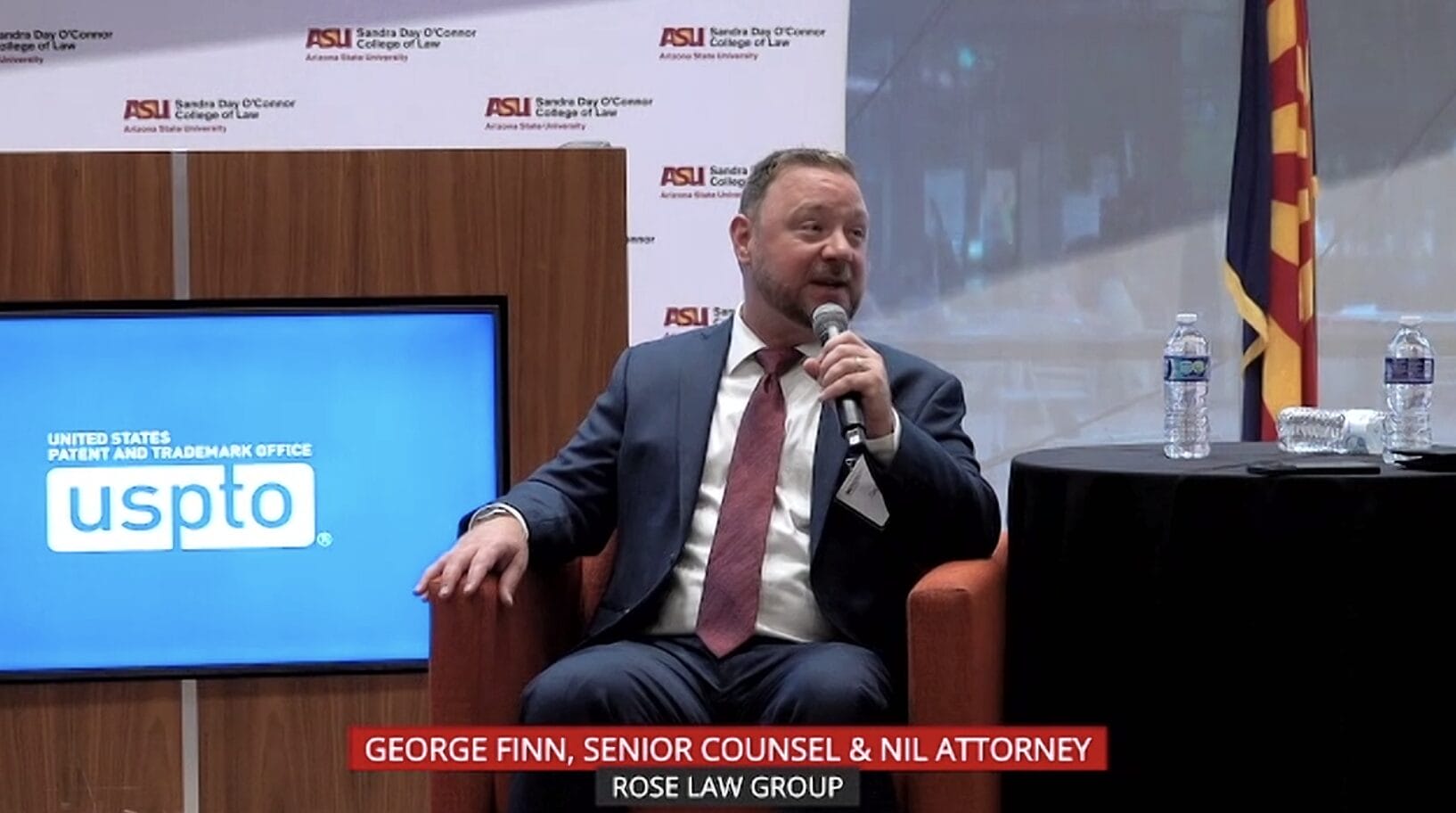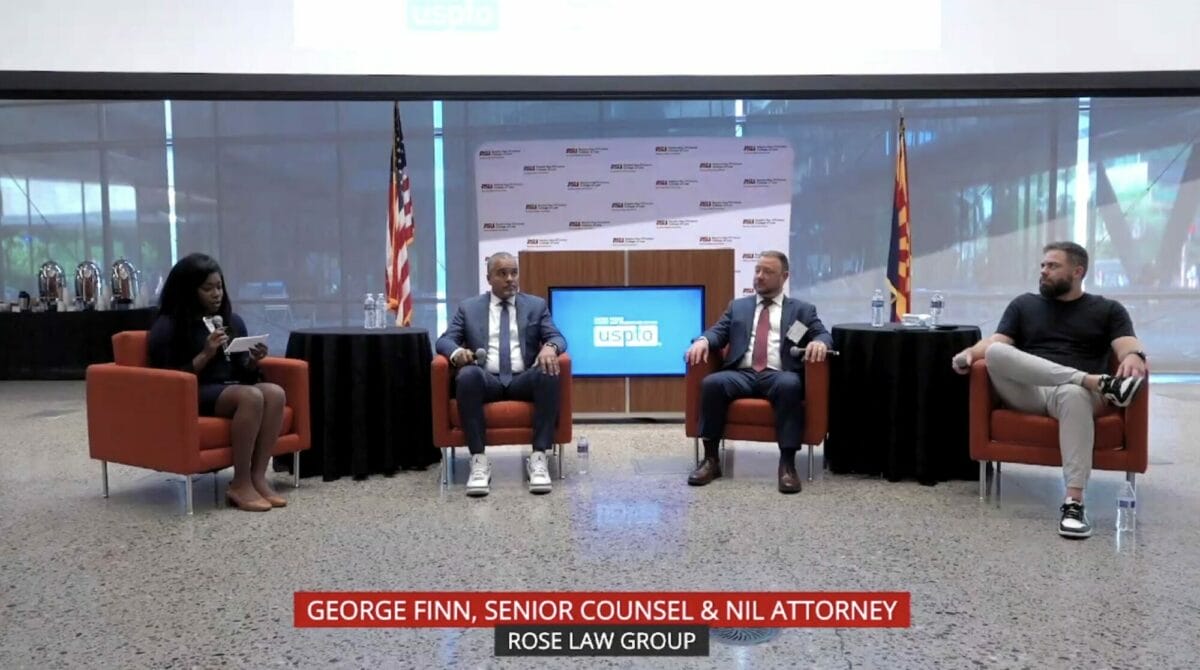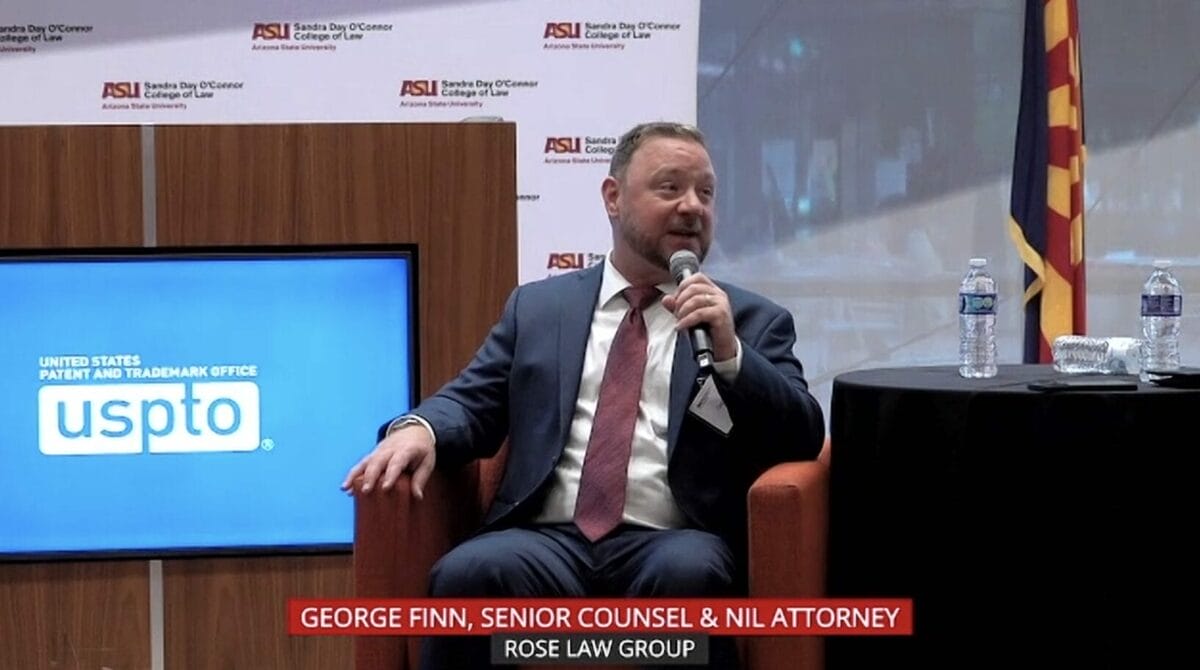
By Madelaine Braggs | Rose Law Group Reporter
At a recent panel hosted by the USPTO at Arizona State University’s Sandra Day O’Connor College of Law, legal professionals gathered to discuss the increasingly complex landscape of Name, Image, and Likeness (NIL) rights for student athletes. Moderated by ASU second-year law student Keyerra Harfield, the panel featured: George Finn, Senior Transactions Attorney at Rose Law Group; Luke Fedlam, Managing Partner of Advance NIL; and John Van Dyke, VP of Athlete Marketing at Society LLC.
Throughout the discussion, Finn reflected on his experience handling NIL deals for student athletes, corporate transactions and estate planning to deliver hard-hitting insights about the importance of legal protection for athletes and influencers entering into NIL agreements with brands and collectives.
“Understand Every Sentence”: The Need for Counsel in NIL Deals
George Finn made it clear from the start: “Don’t just sign it. Make sure you understand every sentence that’s in the agreement, each sentence has significant legal consequences,” he said. Finn says in this industry, bargaining power often lies with the corporate entity, regardless of the deal size. He repeatedly stressed the importance of having “adequate counsel” before committing to any contract, reminding us that every business is going to prepare a contract that heavily benefits them, even if it’s not in the best interest of the other party, which is true for any contract, not just athletes
“It’s not only the big deals—it’s the smaller deals too. Regardless, the leverage and the bargaining power are always going to be on the corporate entity,” Finn warned. Without a lawyer in their corner, athletes could find themselves in a vulnerable position, particularly when facing multi-layered contracts with hidden implications. “I’m always anticipating a draft to go back and forth with changes,” Finn added, encouraging athletes to see contracts as a starting point for negotiation rather than something set in stone, and review every line with each draft throughout the process.

Exclusive Contracts and Morality Clauses: Common Pitfalls
When discussing contract provisions, Finn highlighted two critical areas student athletes should be aware of: exclusivity clauses and morality clauses. Exclusivity clauses, which may prevent athletes from working with other brands, can be particularly limiting. “Exclusivity is a big one,” Finn said. “And if you’re in negotiations and there’s no wiggle room, you try to limit that down to a non-compete clause that’s specific to that industry.”
Morality clauses also pose significant risks. “They always keep morality clauses really vague,” Finn remarked, explaining that a vaguely defined morality clause could easily become a point of contention. “I always ask to define what constitutes conduct detrimental to the sponsor.” Finn’s approach is to make sure these clauses are clearly spelled out so athletes know exactly what behavior might breach the contract.
He also introduced the idea of a “reverse morals clause,” something many athletes may not even consider. “You can set terms for them too, especially if it’s a smaller business. If the founder says something that contradicts your values, you can act on that as well,” Finn said, showing that athletes can protect themselves against unethical behavior by the companies they work with.





